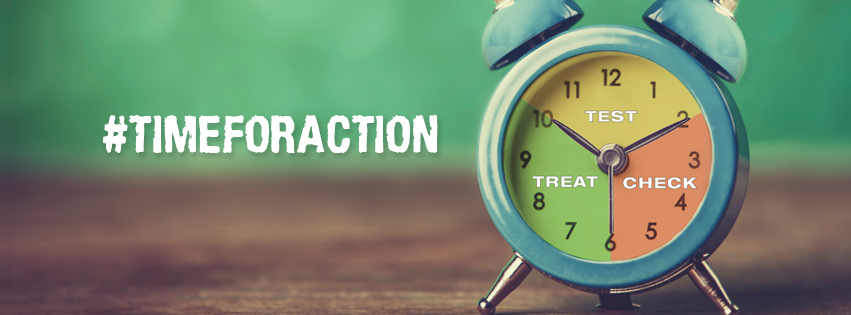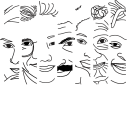The MHAHS is working with the Hepatitis B Community Alliance NSW to increase awareness of the benefits of hepatitis B testing, monitoring, treatment and prevention. Featuring community leaders, #TimeForAction is our first media story in the series.
2015 World Hepatitis Day (28th July) / Hepatitis Awareness Week (27th July - 2nd August)
Community Leaders Urge collective action on hepatitis B #TimeForAction
Local communities across Australia, including the African, Arabic, Chinese, Greek, Indonesian, Italian and Vietnamese communities, are being urged to take action to test, treat and prevent hepatitis B.
Speaking ahead of the World Hepatitis Day and Hepatitis Awareness Week 2015, the President of the African Women’s Group and member of the Hepatitis B Alliance NSW, Ms Rosemary Kariuki-Fyfe said the annual Awareness Week provides a wonderful opportunity for communities to come together and take action to combat hepatitis B.
“Hepatitis B is a serious liver infection and can cause serious health problems, including liver cancer. That’s why it’s important that our people take positive action and get tested, and if found to have hepatitis B, speak to their doctor about regular check-ups and treatment. These simple actions can save lives,” Ms Kariuki-Fyfe said.j15-729 hep-fb-header-a1

Figures released by Hepatitis Australia show there are approximately 218,000 people living with chronic hepatitis B in Australia in 2011 with about 77,000 living in NSW. Liver cancer is now the fastest growing cause of cancer death in Australia.
Chronic hepatitis B disproportionately affects people from culturally and linguistically diverse (CALD) backgrounds, particularly those born in regions where hepatitis B is common such as East and South-East Asia, the Pacific, the Middle East, Mediterranean and Africa.
Ms Kariuki-Fyfe said hepatitis B was a collective responsibility and said success against it would depend on our leadership and everyone working together.
“Everyone can take action. For example, health care professionals looking after people from CALD backgrounds must know that high rates of hepatitis B exist in CALD communities and that people living with hepatitis B often have little or no symptoms until the liver becomes severely damaged. On the other hand, people from CALD backgrounds must also need to ask their doctor for a hepatitis B blood test”.
Ms Kariuki-Fyfe released a list of actions that members of the African community in Australia can take to tackle hepatitis B:
- Acknowledge that hepatitis B is a very common in our community.
- Understand that hepatitis B can lead to serious liver damage, even liver cancer.
- Know that the most common way hepatitis B is passed on is from mother-to-child at birth.
- Get tested for hepatitis B. If you have it, there are treatments that can prevent liver cancer.
- If you have hepatitis B, talk to your doctor about regular checks and treatment options.
“Every Australian has a role to play in the fight against hepatitis B. We should take courage from knowing that we have the tools to test, treat and prevent hepatitis B and make this condition rare in our life. Let’s make it happen,” said Ms Kariuki-Fyfe.
Hepatitis Awareness Week is coordinated by Hepatitis Australia – which has launched several hepatitis related resources including a poster titled Time for Action emphasizing regular liver testing and treatment.
Visit www.mhahs.org.au for more information on hepatitis B and resources related to the World Hepatitis Day and Hepatitis Awareness Week.
Talk to your doctor about hepatitis B (in Australia, all conversations with your doctor remains private) or call the Hepatitis Hotline on 1800 803 990. If you want to use a telephone interpreter, first call 131 450.
End
For media interviews, please contact Sonam Paljor from the MHAHS at (02) 9515 1234 or email
About hepatitis B
The word “hepatitis” means inflammation of the liver and is most often caused by a virus. There are many different viruses that can cause hepatitis, including hepatitis A, B and C. If you think you may be at risk of hepatitis B, talk to your doctor for advice on testing and available treatments. A simple blood test can detect evidence of hepatitis B infection. These tests are available FREE of charge to priority communities at your local sexual health clinic where you also do not need to give your name or have a Medicare card.
WHO estimates more than 240 million people living with chronic (long-term) liver infections in the world with more than 780 000 people dying every year due to the acute or chronic consequences of hepatitis B. In Australia, there were approximately 218,000 people with chronic hepatitis B in 2011. It is estimated that about 50 per cent of cases are among people born in East and South-East Asia and a further 20 per cent from other regions where hepatitis B is more prevalent including countries in the Pacific, the Middle East, the Mediterranean, and Africa. About 44% of people with CHB don’t know they have the virus.
Hepatitis B virus is transmitted by exposure to infectious blood or bodily fluids. The virus cannot be spread by holding hands, sharing eating utensils or drinking glasses, kissing, hugging, coughing, sneezing or breastfeeding.
About Hepatitis B Community Alliance NSW
The Hepatitis B Community Alliance NSW champions the testing and treatment of people at risk of chronic hepatitis B and focusses on building community partnerships and working together to address hepatitis B issues in the CALD communities.
About MHAHS (Multicultural HIV and Hepatitis Service)
The Multicultural HIV and Hepatitis Service, hosted by the Sydney Local Health District, employs workers from over 20 different language backgrounds, including African languages and provides information on hepatitis B. The MHAHS can be reached on 02 9515 1234.
For more information on how to get involved with Hepatitis Awareness Week, visit http://loveyourliver.com.au/worldhepatitisday
